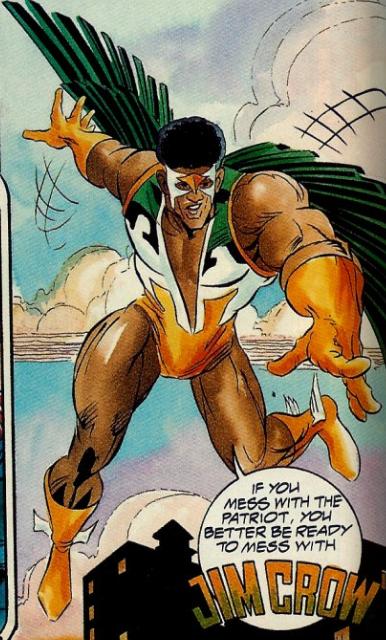MODERN MARVEL:WHY NETFLIX’S LUKE CAGE IS THE SUPERHERO WE REALLY NEED NOW
*******
Really great and long article at the link-HIGHLY recommended reading. I'm so excited for this series.
Compared to his big-screen Marvel counterparts, like Iron Man and Thor, Netflix’s Luke Cage might seem like a low-stakes superhero. He isn’t out to save the universe, and he doesn’t wear a flashy costume; he rarely even uses his superpowers, which are presented more as a behavioral quirk than a defining characteristic of his personality. He’s deeply flawed, haunted by his past, and, as Colter says, might pick up women at a funeral. But that’s precisely what makes him so heroic. He’s working on it, struggling to accept himself in the face of a world that keeps pushing him toward invisibility. “So many times, black protagonists have to be holier than thou, but he’s not an angelic figure,” says John Singleton, the Boyz n the Hood director and a friend of Coker’s. “It’s the right time for this kind of hero. He’s so needed in the world.”
From the beginning, says Jeph Loeb, head of Marvel’s television division, the company was looking for someone who could not only entertain but also address issues of race: “What is going on in this country for blacks and whites, and how can we tell that story through the eyes of a superhero?” Marvel was in the midst of expanding its roster of nonwhite superheroes, including introducing a Muslim Ms. Marvel and a Latino Spider-Man. The company has since hired Ta-Nehisi Coates, author of the best-selling Between the World and Me, to pen the newest adventures of Black Panther, the supergenius ruler of a fictional African nation. (That character will soon appear in a film directed by Ryan Coogler, who helmed Fruitvale Station, about a victim of police violence, and Creed, the heroic saga of Apollo Creed’s son.) Still, this was Marvel’s first attempt to create a series or film with a black protagonist at its center, a responsibility that Loeb took very seriously. “If we can get one person to watch the show and to think differently about what it is to be a hero in the present day, and what it is to be a black hero, then that’s a victory,” he says.
Coker developed a story about a prison escapee living anonymously in Harlem—until he’s unable to resist the responsibility to help his community.
Cage’s heroic journey is similarly personal. His mission isn’t to track down Doctor Doom like he did in the ’70s but to accept his responsibility to help defend Harlem from the many forces that threaten it. Coker says he was inspired to serve as showrunner when he realized the ramifications of a series about a black man with impenetrable skin and how that might empower him to take on both criminals and crooked authority figures. “The main reason people don’t speak out, their main fear, is getting shot,” Coker says. “So what happens if someone is bulletproof? What happens if you take that fear away? That changes the whole ecosystem.”
*******
After finally accepting the part, Colter sat down with Loeb and Marvel’s chief creative officer, Joe Quesada, who impressed upon him the importance of bringing their first black superhero to the screen. “He means more to his fans than some young man who was bitten by a radioactive spider,” Loeb says. “We have a responsibility, more so than with any other character we’ve had so far, to make sure that we get it right.” Even before shooting began, Colter says, people began stopping him on the street to tell him how important Cage was to them. “They didn’t have any other character they could relate to, an American black guy from the streets,” Colter says. “That became important to me.”
So did the opportunity to work with a team of black producers and to address—even symbolically—issues of importance to the black community. At several points during the series, including during some of his most heroic moments, Cage can be seen wearing a hooded sweatshirt. To some extent, this makes sense for the character, who is on the run and trying to lie low. But it is also, Colter says, a nod to Trayvon Martin and the Black Lives Matter movement—and the idea that a black man in a hoodie isn’t necessarily a threat. He might just be a hero.
As Colter tells me this, it’s less than 48 hours since the shootings of Alton Sterling and Philando Castile, making them the 116th and 117th black men to die at the hands of police so far this year. In the national mourning that has followed, it’s naive to think that Luke Cage will do much to change that grim trajectory. But that’s not to say it can’t be meaningful in its own way. When I spoke with Coker, he told me about the first time he saw the trailer for Captain America: Civil War with his twin sons. “It was the first moment they saw Falcon”—another African American character—“and I looked at how they reacted. I still get emotional about it. When you come from the culture that you see onscreen, it inspires you in different ways. I grew up loving Luke Skywalker and Indiana Jones and Rocky. But they don’t look anything like me. They’re universal, and you get past that, but I can’t imagine what it would be like to be Italian and see Rocky. And when I saw my sons’ reaction to Falcon, that’s when I realized the importance of what we’re doing.”
Really great and long article at the link-HIGHLY recommended reading. I'm so excited for this series.


